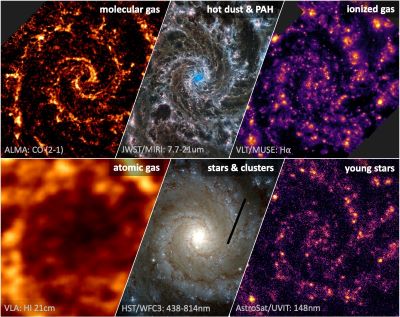 |
|
Astrophysical and Planetary Sciences Colloquium
Monday, March 06, 2023 at 12:15-1:15PM JILA Auditorium Katie Grasha, "Galaxy evolution through the eyes of stellar modelling and resolved, multi-wavelength star formation observations"  Abstract:Massive stars play an important role in the evolution of the Universe. They produce mechanical feedback through winds, they ionise their surrounding ISM by radiation, and enrich the ISM with heavy elements. However, the chemical composition of these stars, especially at low metallicity, is not well constrained, introducing significant uncertainties into their interplay and interaction with the interstellar medium (ISM) from which they are born. Particularly, the shape of the ionizing field that permeates the ISM, and the resulting emission line strengths, depends strongly on the ionizing photon output of the most massive stars and their chemical composition. Through quantifying the chemical abundance ratios across cosmic time, and incorporating this self-consistently in stellar and photoionization models — where stars are modelled with the same chemistry as the gas from which they form from — we are starting to reconcile these historically distinct fields to accurately predict galaxy properties across cosmic time. This talk presents an overview of current research combining stellar models with observations of individual, resolved star formation events and their interlinking to global properties at the scales of entire galaxies. This interface between stellar astrophysics and galaxies allows for a new frontier in modern astrophysics research: shedding light on galaxy formation evolution by studying the chemical evolution occurring within galaxies at the scales of individual stars. This research will exploit observations from the JWST to make fundamental new measurements of the formation of stars in the first galaxies and improve our understanding of how the metals in stars are recycled into the interstellar gas of galaxies throughout cosmic time, one of the most fundamental questions in all of astronomy.
|